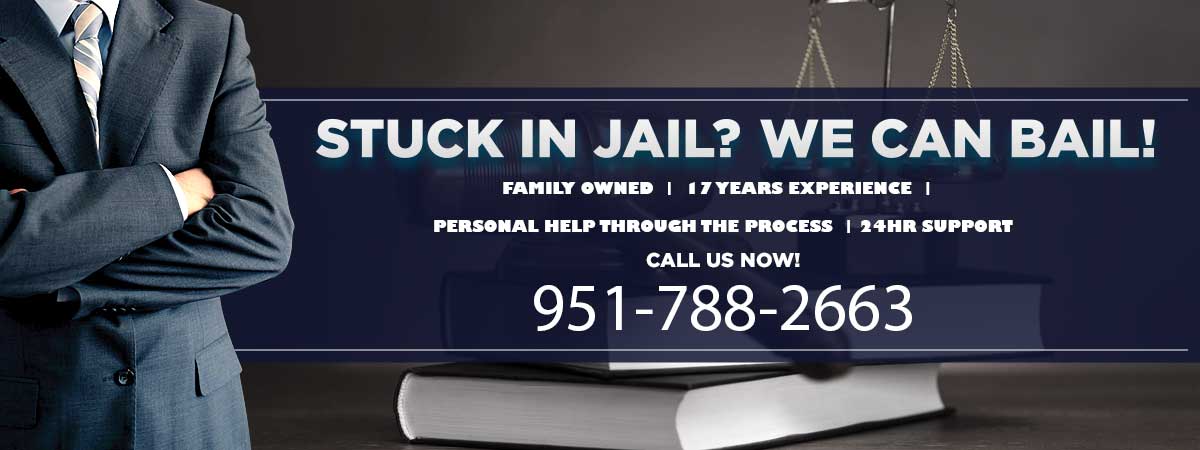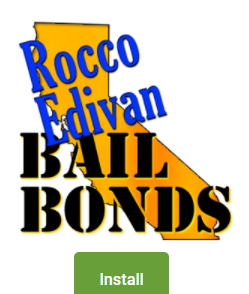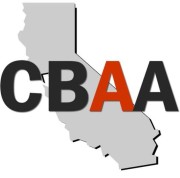The California bail process is something you hope not to understand but something that you should know when you need it. While it is a simple process, many can easily take advantage of you if you need help fully comprehending it. Riverside Bail Bonds, a skilled and qualified Anaheim bail bondsman, has compiled this guide to help you secure your loved one’s release promptly and at an affordable cost. Securing a prompt release from jail enables you to care for your children, keep your job, and prepare adequately for court proceedings. Additionally, you are more likely to accept a plea offer when behind bars.
An Overview of Bail in California
Bail allows you, the accused person, to be released out of custody until your trial. Otherwise, you will remain detained until your trial. The court will refund you the amount once your case closes, provided you comply with your bail conditions, including making your court appearances.
Although you can decide to stay in custody while awaiting trial, doing that is probably not beneficial. Here is why:
- You will experience discomfort — Jail is not a suitable place. Jail food is terrible and usually without vital nutrients, and in many cases, your company there is not good either. The beds can be stiff, the high temperatures are undesirable, and things smell strange. Other prisoners can also engage in brawls. Correctional officers are sometimes hard to get along with, and you could lack access to the routine comforts you are used to. If some prisoners are sick, you will likely become ill. Finally, you will only speak with your loved ones and friends through the jail phone or a television screen at regular intervals, which could feel outstandingly isolating.
- Posting bail enables you to prove good faith — When you are accused of committing an offense, it works in your favor to do what you can to enhance the court’s opinion of you. Leaving jail on bail enables you to do that. While you are out on bail, you can secure your employment, proving to the court that you are working towards being a more productive and law-abiding citizen.
- Your case might go stale — Trials do not often become stale, but they can happen, and it is something you should consider while deciding whether you should post bail. A stale case refers to a case that is presented before a California court when the California statute of limitations has expired. It could happen if the prosecution is busy and the case is processed slowly due to the defendant posting bail and being released from custody. In this case, witnesses may no longer be available to testify, resulting in a more favorable deal.
- You could avoid being sentenced to time in jail — If you believe you will be found guilty of your alleged offense, you could assume that remaining in jail is the best decision because the time spent behind bars will be subtracted from your final sentence. Although that idea seems sensible, you should consider that you could avoid receiving a prison sentence. Since most jails are overcrowded, you could waste weeks or months waiting for the case to close.
- Jail can be expensive — You could be in county jail, away from work, but that does not mean the bills will stop coming. If you live paycheck to paycheck or your loved ones depend on a specific degree of financial sustenance from you, remaining in custody can jeopardize your or your family’s finances. Even if posting bail could strain your finances, it is worth the effort. Otherwise, you will incur monthly expenses with no additional income to pay the bills.
- What you say can be used against you. In jail, ears are everywhere, and the longer you stay in custody, the higher your chances of saying something incriminating. When conversing on the phone, the conversations are recorded. When chit-chatting with fellow inmates, correctional officers could overhear what you are saying. And even if you are talking with another inmate confidentially, there are no guarantees that an individual will not repeat the words you spoke to someone else. Posting bail removes you from a scenario where the prosecution team can use anything you say against you in a courtroom.
Bail Amount Determination
Following an arrest, the police will book you. The booking process involves documenting your essential personal details, like your name, photographs, and fingerprints, and entering them into the police database. The police officer will administer a sobriety test. It could be the second test if your arrest resulted from failing the initial sobriety test. Then, they will allow you to make one phone call before placing you in custody.
A bail hearing follows, where the judge determines your bail amount. The bail hearing usually takes place 48 hours following an arrest.
a) Bail Schedule
A bail schedule lists recommended bail amounts for most crimes. It is a guideline that court personnel and judges use when setting the required bail amount.
While it offers a framework, a judge can modify it based on your case's unique facts. The main facets of the bail schedule include the following:
- Crime classifications — The bail schedule classifies crimes into various groups, including felonies and misdemeanors, based on their type and seriousness. Every classification has a scale of bail amounts linked to it.
- Specific crimes and the recommended bail amounts — The bail schedule lists crimes and the corresponding bail amounts.
- Bail amount range — Typically, it entails a scale of bail sums for every criminal activity, permitting courts to exercise their discretion within the range.
- Adjustments and exceptions — The schedule can indicate the circumstances under which judges can modify the recommended bail amount. The exemptions could include extraordinary case facts, offenses committed using firearms, crimes involving the vulnerable, and repeat offenses. A judge can reduce or increase your bail based on specific case facts.
The bail schedule is a starting point for bail sums, and a judge can modify the amount based on the factors discussed below.
If you want to secure your release immediately without seeing a judge, you can pay the amount highlighted in the scheduled bail to the jail official.
However, police arrest most defendants for the most severe offense. For instance, an individual found possessing drugs can be charged with drug trafficking instead of possession if there is proof suggesting trafficking, even if possession is more plausible. That means the bail amount under the bail schedule could be more than necessary. The prosecution can later reduce the charge, but this will not impact the amount you should post under the bail schedule. Bail schedule amounts are non-negotiable.
b) How the Judge Determines the Required Bail Amount
The court considers several factors when determining the suitable sum. These factors include the following:
- The severity and nature of the offense — More severe offenses or those involving violence like robbery or murder have higher bail sums than less severe crimes.
- Your criminal history — Having a criminal conduct pattern can result in a higher bail amount since it suggests you are more likely to become a repeat offender.
- Flight risk assessment — The judge will consider your possibility of failing to appear in court when required. Factors like your previous failure to appear in court, family relationships, community, financial resources, and employment status can influence your bail amount. If the judge deems you a flight risk, you will pay a higher bail amount or require you to comply with additional release conditions, like electronic monitoring.
- Whether you threaten your community — The judge can set a high bail amount or even deny bail if they consider you a threat to your community, specific persons, or yourself. The judge considers factors like the presence of firearms, the nature of the alleged crime, and evidence proposing a risk to others.
- Community stability and ties — Your community connections, including length of residence in Anaheim, employment status, and family, can affect your bail amount. Robust community ties can potentially result in reduced bail sums.
How Anaheim Bail Bonds Function
After your arrest, there are four ways of posting bail and securing your release from custody. They include the following:
- Paying a cash bail
- Using your property as collateral to post bail
- Hiring the services of an Anaheim bail bonds company
- Release on own recognizance and other court-imposed pretrial conditions
You can work with Anaheim bail bond companies when you cannot raise the court’s set bail amount. A bondsman can also come in handy if you have enough money to post bail but the prosecution has charged you with a crime involving felonious transactions.
Your bondsman communicates with the court staff and handles administrative tasks and paperwork, ensuring an efficient and smooth bail process. A primary advantage of using a bondsman is a lower financial burden. Instead of posting the entire bail amount, you should pay a ten percent premium. It is more cost-effective if you cannot access the required amount. Your competent bail bondsman assumes the liability of securing the outstanding amount.
Bail bondsmen have experience navigating the criminal judicial system and the California bail process. They can offer advice and support and stand with you through the relevant steps. The efficiency of the legal system can accelerate your release, ensuring a swift return to what matters.
You, your defense lawyer, a relative, or a friend can call the bail bondsman. When communicating with the bondsman, you should inform them of the following:
- The jail your loved one is in — You should know the name of the jurisdiction and its location (the county and city)
- The defendant’s name — You should know the arrestee's full name. Ensure you know the proper spelling of their name.
- The alleged criminal charges
- The accused’s booking number — After processing, every detainee receives a booking number. If you do not know the number, you can contact the correctional facility holding your loved one.
- The set bail amount — For your bondsman to offer you the best bond options for your situation and needs, you should know your loved one’s total bail amount. You can call the jail if you are unsure.
The bondsman will collect basic details about your criminal situation to evaluate the risk involved. Many bail bond companies ask questions like where you are being detained, how long you have been in custody, your charges, and your employer’s address. If bail is determined and the bondsmen deem you eligible and that you are not a flight risk, then you will benefit from their services.
Next, the bondsman will require you to sign the following documents:
- A bond application form
- A receipt
- Bail indemnity agreement
Upon completing the relevant paperwork, a bondsman will pay your bail at the jail you are held in. The process could take about 20 minutes to two hours. It depends on factors like how busy the jail is that day, your number on the line, and the number of jail personnel on duty that day.
Since an arrest can occur anytime, experienced Anaheim bail bondsmen operate round-the-clock. You can complete paperwork and make payments electronically, speeding up the process. The paperwork addresses several things, like what you will use as collateral and the fees the bondsman will charge you for accessing the service.
Calculating Your Bail Bond Amount
Determining your bail bond amount involves considering various factors. Here are steps to help you understand how your bondsman will determine the amount:
- The first step is determining the court-set amount.
- Calculate your bail bond charge — The ten percent premium is non-refundable; it acts as payment to the bail bondsman for its services. For instance, if your set bail amount is $20,000, the premium fee will be $2,000.
- Consider collateral — Your agent can require collateral as a guarantee against your bail bond should you skip bail. It can include a motor vehicle, home, stock, and other valuable properties. The bail bondsman determines the collateral’s value.
- Assessing additional fees — Your bondsman could link more fees to the bail bond process. Your trustworthy Anaheim bail bonds company should clarify and assist you in understanding these fees before entering a bail bond agreement.
- Considering special circumstances — In specific cases, like high flight risk or severe crimes, the judge can impose more restrictions or increase your bail amount. These circumstances can affect your bail bond calculation, and you should consider any conditions that may apply to your criminal case.
- Consult your bondsman — Your bondsman should guide you through the requirements and offer precise calculations.
Please note that the bail bond sum differs from legal fees, penalties, or fines related to the charges.
Please consider speaking with your bondsman if you cannot afford your bail bond premium. Riverside Bail Bonds understands that your family still requires basic needs after your release and can offer flexible, affordable payment plans. A flexible payment plan allows you to pay a downpayment of your total bail bond amount and clear the outstanding balance later.
How Long Will You Be Liable to Your Anaheim Bail Bonds Company?
You are accountable to your bondsman for as long as you have a pending criminal case. The bond is canceled if the court dismisses your case, finds you guilty, or acquits you. Any costs, fines, and fees the court imposes are not your bondsman’s responsibility. The agent’s responsibility is to ensure you attend all court hearings.
Your bondsman can only arrest you after skipping bail. If you fail to appear in court, the court will forfeit your bail, whether you post cash bail or Anaheim bail bonds. It means the company will be responsible for your entire bail sum, so it will be compelled to find you and return you to jail.
What Happens If You Skip Bail?
If you decide to jump bail, you can expect the following to occur to you:
- The judge will issue an arrest warrant in your name
- You could be charged with an additional criminal charge
If you are a co-signer and the defendant subsequently skips bail, you risk losing your bond payment and collateral. It is your responsibility as an Indemnitor to ensure their court appearance. When you bail a person out, you vouch for their trustworthiness.
The law allows you to contact the court and your bondsman and request that they terminate your indemnity agreement if you believe the defendant will skip bail.
Courthouse, Police Department, and Jail Contact Information
Anaheim City Clerk
Central Justice Center
Anaheim Police Department
The Anaheim Detention Facility
Contact a Competent Bail Bondsman Near Me
After the judge has determined your bail amount, you can post the amount with the court to secure your release. You can use a seasoned Anaheim bail bondsman if you cannot afford the amount. You can also hire a bondsman even if you have the entire bail amount. Posting bail alone can be time-consuming and overwhelming; a prompt release will allow you to prepare your case defense. Riverside Bail Bonds takes pleasure in helping you. We can listen to you without reservation or judgment, believing you are innocent until proven guilty. With us by your side, you have a trusted partner who understands the importance of freedom.
Do not allow the complexities of life to weigh you down. Call us at 951-788-2663, and let us be your key to freedom.





